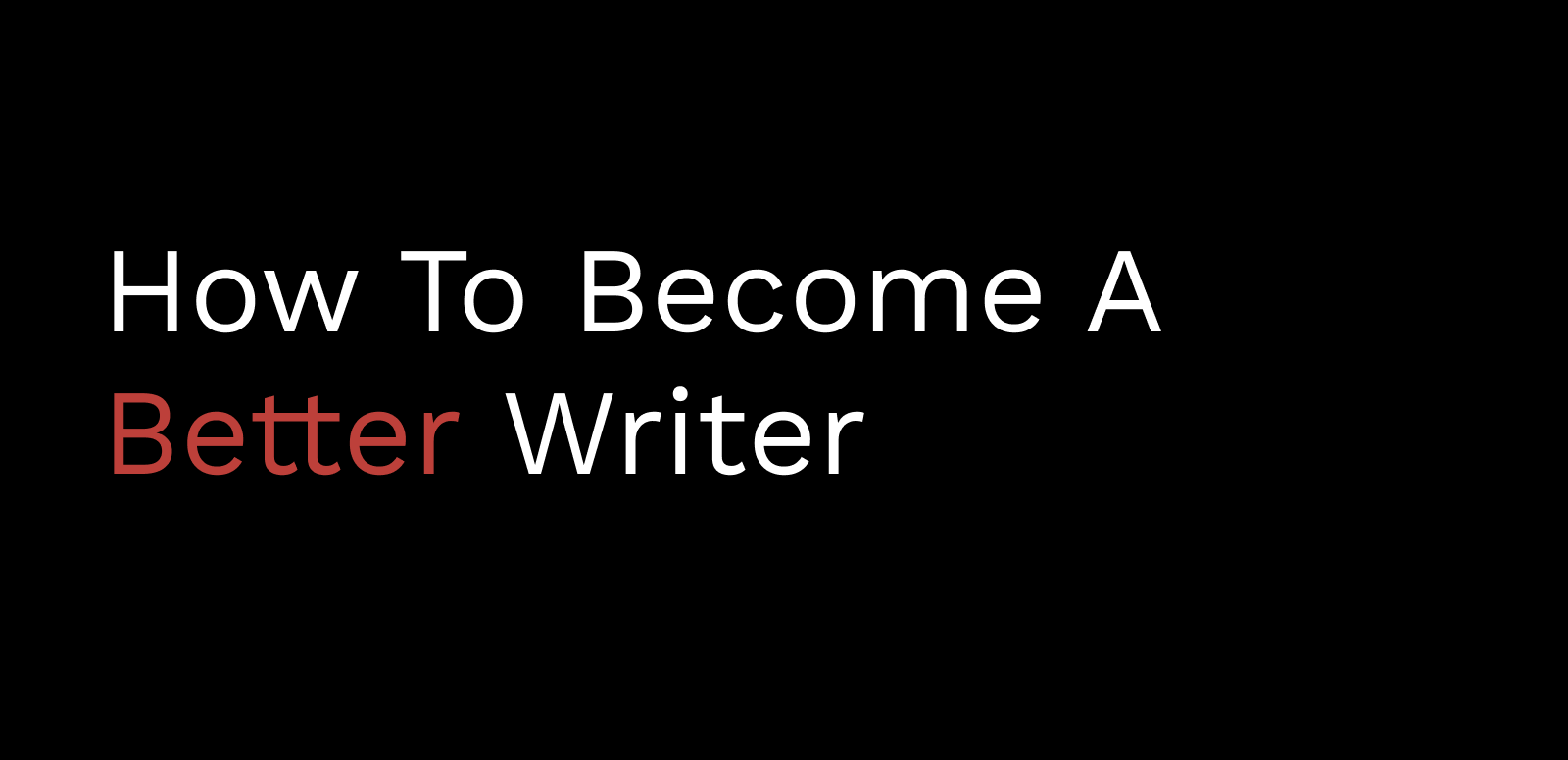Want to know how to become a better writer?
The secret is those specific words.
Because no matter whether you’re a great, good, bad, or self-loathing writer…you can always become a better writer.
Between my blog posts, newsletter for creators, and tweets, my writing has been read by millions of people and in the process I’ve learned a few things about what it takes to become a better writer.
Here are a few suggestions to help you figure out what to write, how to write it, how to edit it, and ultimately how to succeed as a writer.
How To Start Writing
Writing isn’t one process — it’s three.
Idea generation, writing, and editing are completely different processes and should be approached separately.
The first mistake to avoid as a writer is to try and do more than one of those things at a time — that’s a recipe for bad writing.
So let’s start my advice for you with the first phase…
Things To Write About
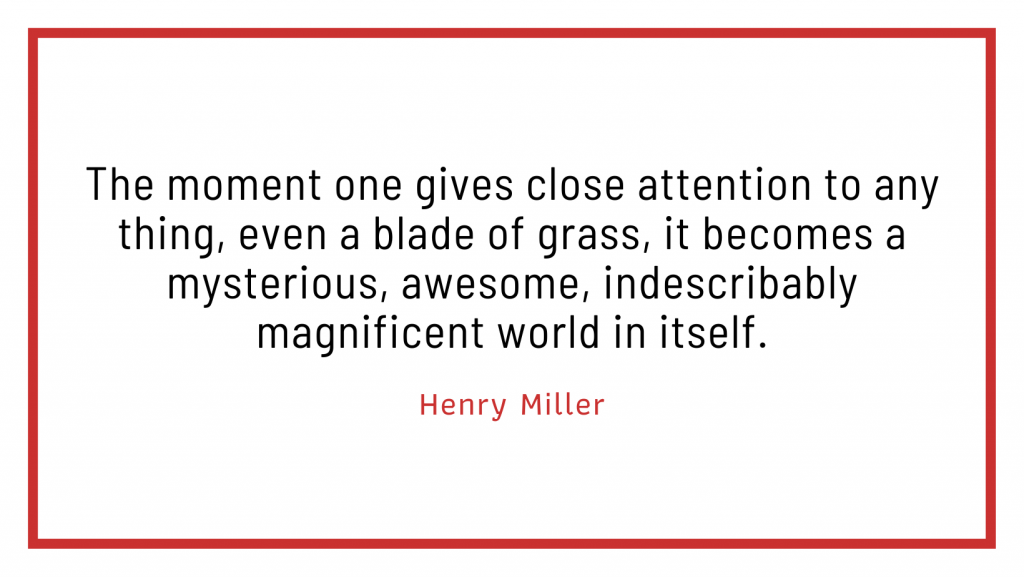
Writing begins before you write.
It begins when you turn noticing things into a daily habit.
Pay attention to your surroundings, your interactions with people, and actively incorporate an array of influences into your life.
The places you go, people you meet, things you do, media you consume, and experiences you have all become assets in your writing arsenal.
Experience is the foundation of great writing and the more you acquire, the more you have to draw on.
How To Generate Ideas
Idea generation is the process of coming up with concepts while writing is the process of communicating those concepts.
They’re related, but different.
So before you write set aside time specifically to generate ideas.
There are countless ways to do so — brainstorm, challenge yourself to come up with 50 ideas, bounce ideas off other people, or whatever helps you juice your creativity.
Just be sure to separate the communication of your ideas (the writing) from the origination of them.
Doing so frees you up to discover more and better ideas than you otherwise might.
If you still struggle to come up with ideas to write about, there are a few specific things you can do.
First, consider the goal of your writing and what you hope to accomplish.
Assuming you want someone to do something or get something valuable out of your writing, you can work backwards from that desired result.
Try filling in the blanks on this sentence:
“I want to write something that will help _____ get _____.”
With that in mind, you can create a list of ideas or topics that will help a reader accomplish that goal and know each will be valuable to your audience because it will help them get what they want.
Create Daily Habits To Generate Ideas
The easiest way to ensure you have a steady stream of ideas is to incorporate some daily habits that provoke new ideas for you.
My Nine Habits That Make It Easy To Come Up With Great Ideas is a great place to start.
The habits include:
1. Consider what you consume
2. Regurgitate what you consume
3. Think macro
4. Capture ideas when they come
5. Speak your ideas
6. Ask more questions
7. Study opposite takes on the same ideas
8. Focus on ideas that solve problems
9. Vary where and when you think
For more help coming up with ideas of what to write, you can also use these fill-in-the-blank headlines for inspiration.
How To Write An Outline
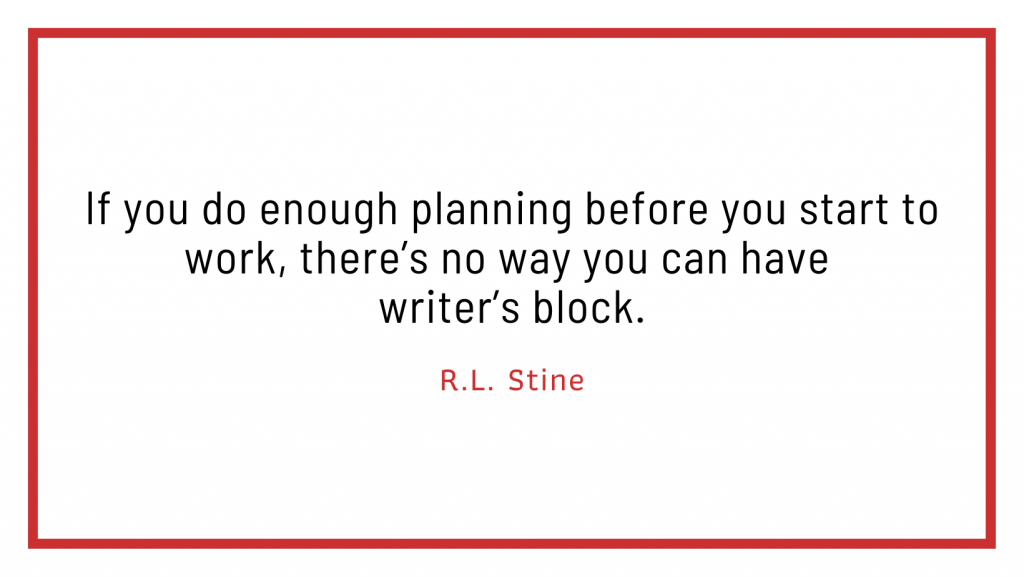
Once you decide what to write about, the next step is to flesh out your idea.
The best way to do this is by creating an outline.
This is an evolution of the idea generation phase — this time tailored to explore further the specific ideas you chose to focus on.
Dig deeper into it, and decide what you want to say and how you want to say it.
Too often writers skip the outline phase and doing so leads to writing that rambles, wanders, and usually misses the mark.
Plus, an outline will make the writing of your first draft MUCH easier (more on that in a moment).
There are lots of different ways to outline, but here’s a simple recommendation based on how I do it.
Start with a one-sentence actionable idea — almost like a potential headline.
Then, write down a handful of one-sentence key points that support or explain that idea.
For example, the outline for a blog post about how to find good podcasts might look like this:
How To Find Valuable Podcasts To Listen To
- Search for name of person to see where they’ve been interviewed
- Twitter search email marketing podcast
- Podcast rec newsletters
- Google search will pull best of lists
- Apple podcast you might also like
- Twitter advanced search to see when person referenced podcast
That’s it.
But that simple outline — sentence fragments and all — gives you a guideline to follow when you start to write and stare at a blank page.
Organizing your thoughts before you write makes it much easier to write.
And now that you’re organized, it’s time to get writing!
How To Write A Rough Draft
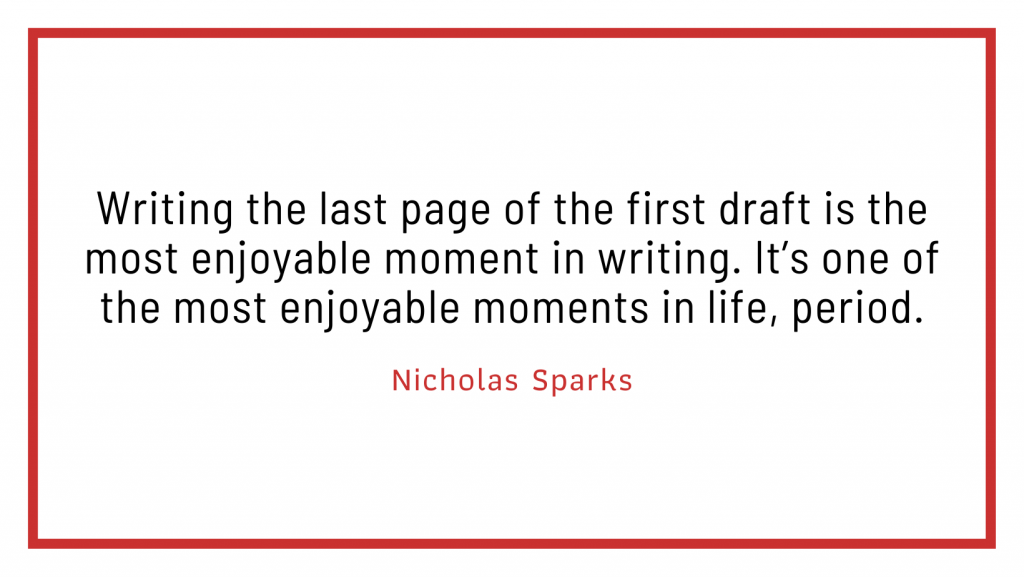
No matter how talented you are, your first draft will be flawed.
There’s a good chance you’ll hate the words you first spill on to the page and that’s OK.
There’s a reason for it.
Watch this:
In addition to the genius perspective Ira Glass shares in that video, there’s another reason you’ll hate your first draft:
No matter how much you love to write, the initial act of writing is loaded with negative reinforcement.
You struggle to come up with the right words to express your ideas and inevitably get discouraged when your creation falls short of your intention.
While separating the idea generation process and creating an outline prior to writing will make your rough draft infinitely better, it won’t make it perfect and won’t protect you from negative feelings about your work.
But, here’s the good news —your rough draft is the only step in the writing process that will feel this bad.
Because once you get past the first draft, the rest of your work will improve what you’ve written.
It may not make it perfect, but it will make it better.
Keep that in mind as you push through the negative feelings associated with your first draft.
Just get something on paper and don’t judge your initial work too harshly — it will get better.
If you’re stuck on how to start your draft, you may find my advice on how to write a powerful first sentence helpful.
How To Edit Your Own Writing
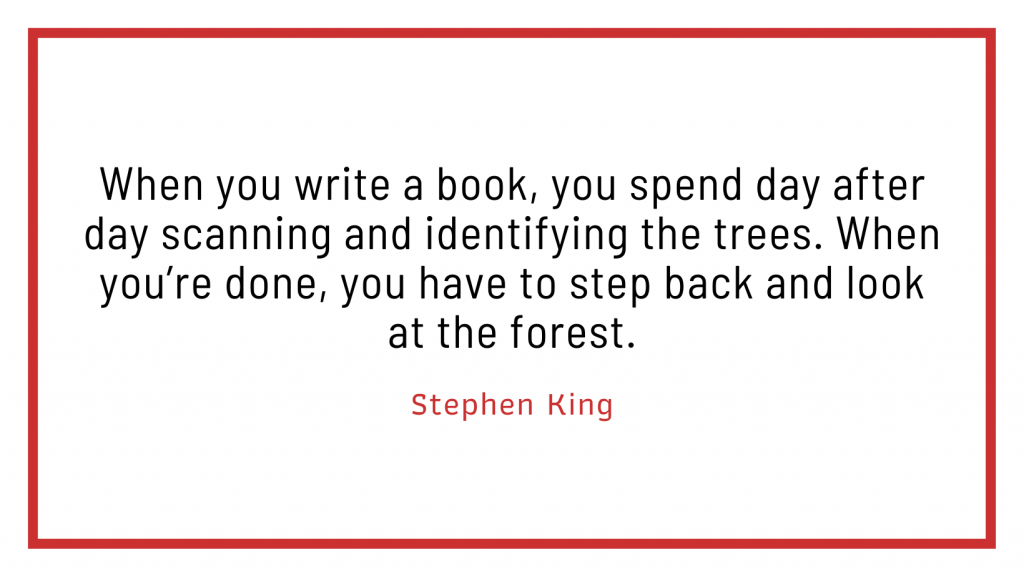
First drafts may be draped in negativity, but editing can fill you with positive momentum.
Because every edit improves your work and gets you closer to your vision.
Editing is also a completely different skill than writing so it’s important to treat it as such. If you edit as you write, you’ll just slow yourself down, confuse yourself, and decrease the likelihood you ever finish a draft.
Editing is its own separate step for a reason — if you edit as you write you’ll slow yourself down, confuse yourself, and decrease the likelihood you ever finish a draft.
When editing, the first — and arguably most important — thing to do is make sure your writing is clear and can be easily understood by readers.
My article on How I Write Clearly can help you figure out how to do that.
In addition to that, here are four tips to help you better edit your writing:
1. Delete at least 10% of the words.
When you think you’re done editing, do a word count and then force yourself to remove at least 10% of the words. It will make what you wrote much better.
2. Kill the “softeners.”
Most writing includes phrases that do nothing other than soften your message. Remove phrases like:
- “I think…”
- “I believe…”
- “As a matter of fact…”
- “As I said before…”
- “After all…”
3. Aim for a two-surprise minimum.
Did you include at least two things that will genuinely surprise readers or are something they haven’t heard before?
If not, you’ve got more work to do.
4. Read 13 Ways To Turn The Next Thing You Write Into The Best Thing You’ve Written
It’s full of ways to improve your writing and editing skills.
What Is Style In Writing?
To become a better writer, you need to master more than just writing and editing.
You also want to develop your writing style.
This is often called “finding your voice,” but the sooner you stop trying to find your voice, the better.
Because you don’t find your voice, you develop it.
The dictionary defines the word “find” as to “discover or perceive by chance or unexpectedly.”
To find something is essentially to hope to get lucky.
It’s something that happens to you — not something you control. It’s not something to bank the future of your writing on.
On the other hand, consider the word “develop.”
It’s defined as to “grow or cause to grow and become more mature, advanced or elaborate.”
To develop something is to make something happen.
It puts you in control of your fate and can take you from hoping to find your voice to actually doing so.
Here are some specific things you can do to DEVELOP your unique writing voice:
- Write what you’re scared to write
- Leverage your experiences
- Showcase your flaws
- Stand out
- Ignore rules
- Practice
- Pay attention to others
I expand on these concepts and explain how to do them in 8 Ways To Develop Your Unique Writing Voice.
How To Be A Writer
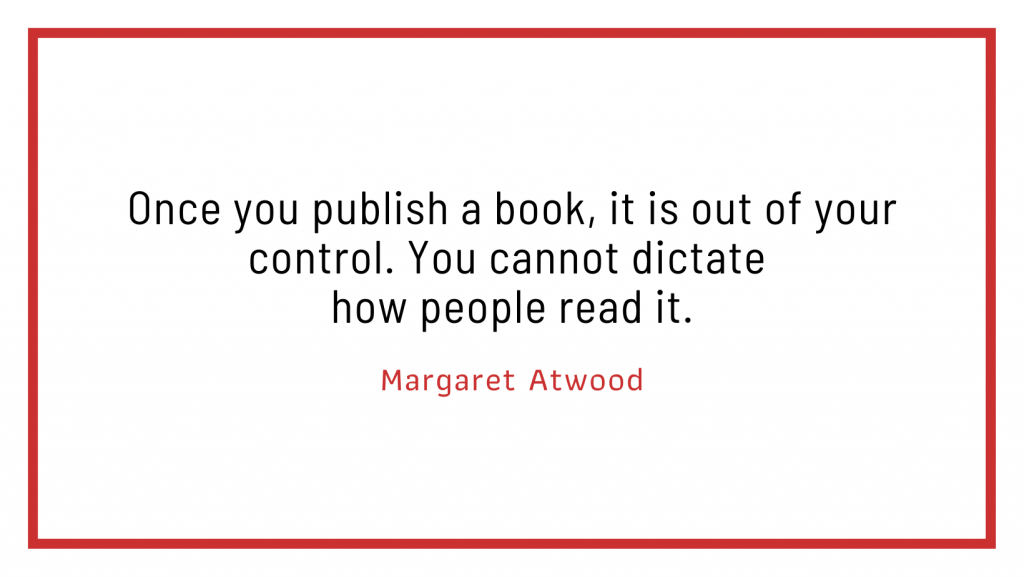
At this point you’ve come up with a great idea, written a rough draft, and edited into something better.
But there’s one more hurdle to conquer.
It’s time to publish and share your writing with others.
This can be a difficult step—it’s easy to fall into the trap of forever “writing” and never publishing.
Publishing forces you to stare down your insecurities and summon the courage to put your creation out into the world despite knowing it may be judged, ignored, or celebrated.
To overcome your hesitancy, remind yourself why you wanted to write and reassure yourself no matter what comes of it, you’ll be fine.
Publishing is a big deal and takes bravery.
By recognizing it as such, you give yourself credit for the accomplishment it is — and give others the opportunity to benefit from what you created.
Writers publish.
And if you want to be a better writer, you need to publish too.
How To Be A Good Writer
Getting through the writing, editing, and publishing process is an incredible accomplishment and one to be proud of.
But inevitably once you get comfortable publishing, you’ll wonder how to become a good writer.
Here are two articles to help you sort that out.
First, read my take on how to know if your writing is good which will likely shift your perspective on how to think about the quality of your writing.
Then, read this if you’re not sure you can succeed as a writer.
You’ll also find inspiration in What It Means To Be A Writer.
More Writing Tips and How To Improve Writing Skills
I hope you found my advice about how to become a better writer helpful.
To dive deeper, here are some writing tips you can use to improve your writing skills and ultimately be a better writer:
The Two Minutes It Takes To Read This Will Improve Your Writing Forever
How To Write Something Useful To Others
And finally, for writing tips and secrets of successful creators subscribe to my free For The Interested newsletter and check out these concepts I most often tell writers who want to grow their audience.
